

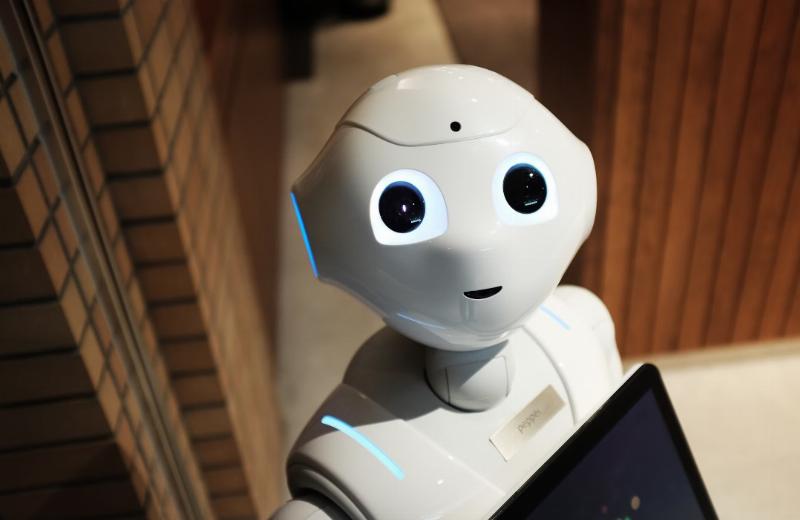
Historical accounts show that humans have always sought a utopia, especially in the workplace. We all want the workplace to be a pleasant and harmonious place to grow and establish a career. Today, I hear increasingly more about the changing nature of the workplace and the general attitude toward work, particularly by the less seasoned. Newer folks on the work scene are demanding work-life balances and more extensive time off to reset themselves from the workplace’s demands, and some are requesting to work fewer hours. But at what cost?
Here is the dilemma: People want to work less, but they consume more than their production allows. If the vision of today’s workers is utopian, then robots and machines are the only remedy.
If humans want more time off and career resets, will machines and robots take over their work tasks and hours? More and more people are finding themselves unhappy in their jobs, but at the same time, they do not want to lose their jobs to robots.
Is there a utopia? Of course, says Current Affairs, who said employees should work less! If there is a utopia, and we are pursuing it, employers will march in robots to replace you when you require longer work resets, relieve you during an extended time off, and fill the work gaps to create happier workplaces.
The data support an ever-growing population of work-related robots tasked with the work humans once did — not just as jobs, but as whole careers. Since the early 1900s, the workplace has tried everything, from new production methods to work-from-home policies and now to the implementation of robotics. The most common objections to the workplace include the need for work-life balance, doing less repetitive tasks, getting away from toxic colleagues, working less and playing more. People, the reasoning goes, are more productive when they spend more time away from work. And most employers can fill the gaps using robots, relieving the burden of work and allowing for more personal time. Right?
The Harvard Business Review recently published an article entitled “How to Keep Working When You’re Just Not Feeling It.” This article indicates that something has changed in employees’ attitudes regarding how work should look. As Figure 1 shows, from the late 1800s to the 2000s, people have been working fewer holidays and taking more vacation days.
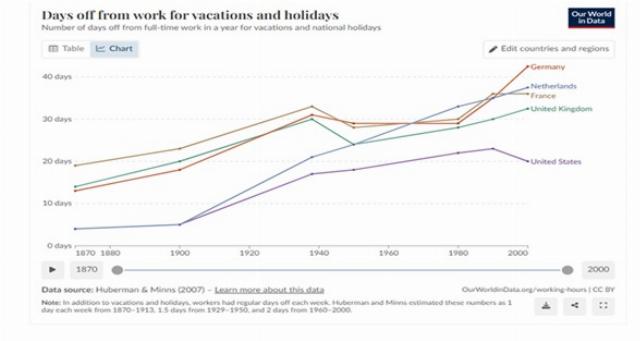
By the 1950s to the early 1990s, there was labor productivity growth and a slowdown, with peaks between 2021 and today. Since the mid-2000s, forward labor productivity has increased by 1.5%. In the grand scheme of things, the current workplace has been working fewer hours since the advent of the Industrial Revolution, basically because of machinery. Charlie Giattino and Esteban Ortiz-Ospina put it this way in their article “Are We Working More Than Ever?”: “Working hours for the average worker have decreased dramatically over the last 150 years. This has come from working fewer hours daily, fewer days weekly, and fewer hours yearly.”
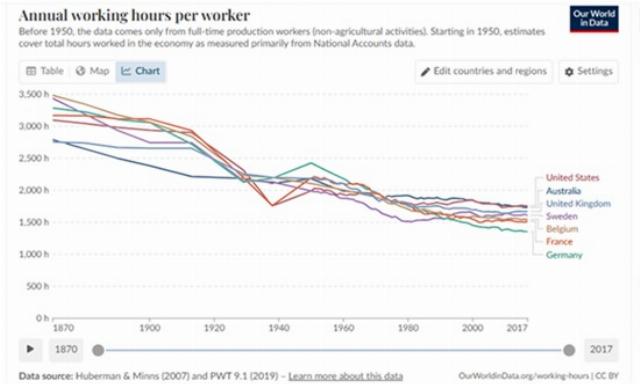
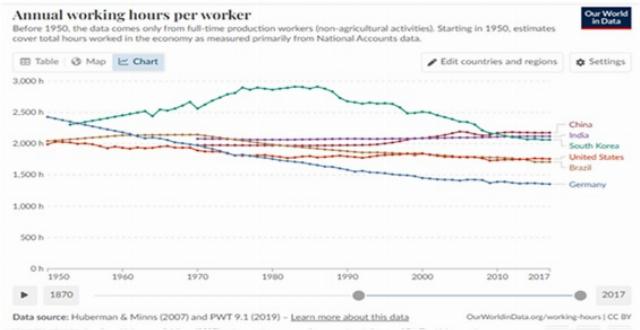
Decades ago, work was centralized, and people stayed with a company until retirement. Things have certainly changed. Now people prefer working from home and, instead of having one job until retirement, are expected to spend most of their lives putting experiences and pleasure before work. Now a central place to work is not the norm, but the exception. Employees decades ago knew something back then that people today do not know: Employers have to make trade-offs. Employers cover the costs of doing business and the price to market for consumer demand, and since consumer demand does not end, the employee has to cover the costs of producing the product or offering the service.
Not everyone is pursuing this workplace utopia, but the wave is here to stay. People have decided that work means something different from what it meant decades ago. What choices will employers make if employees desire to work fewer hours year over year? If people prefer fewer working hours and not working in particular seasons, what is the best trade-off? Which employers will add robots? Is the robotic utopian vision the relief you’ve been waiting for?
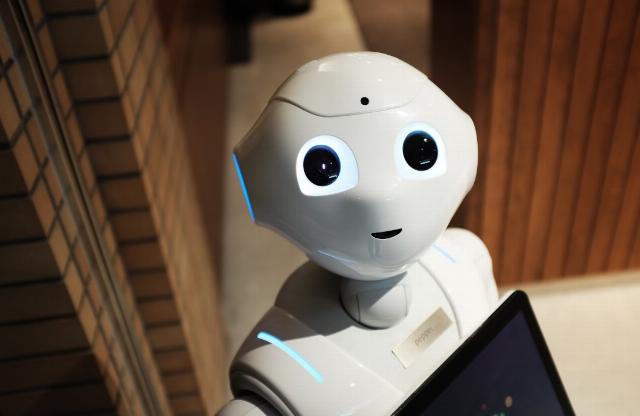
Image via Unsplash.
